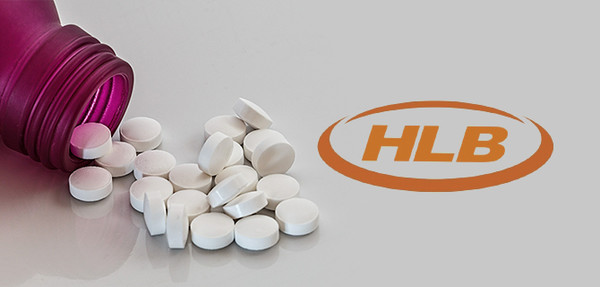HLB said the U.S. Food and Drug Administration (FDA) has initiated a review for approving a combination therapy of rivoceranib and camrelizumab as the first-line treatment for hepatocellular carcinoma (HCC).

The company filed a new drug application (NDA) in May.
HLB Group Chairman Jin Yang-gon said on the company's YouTube account on Monday that its U.S. subsidiary Elevar Therapeutics received the notification from the FDA at 10:30 p.m. last Friday.
He added that the FDA's notification also included the designation of the NDA for general review and that the agency will not hold an advisory committee, which is a type of hearing in which outside experts' opinions are heard separately during the approval process.
As the FDA began reviewing NDA under the general review process, industry watchers expect that the FDA will decide on whether to approve the new drug by May next year, under the Prescription Drug Applicant Fee Act (PDUFA).
Regarding the general review designation, Chairman Jin stressed that the process only takes about four months longer than a priority review and that it does not affect whether a drug receives approval or not.
Typically, priority review is granted when there is an unmet need or an existing treatment that does not meet the treatment needs.
"There is already a treatment for HCC on the market, so it doesn't qualify as an unmet need," Jin said. "While we tried to receive a priority review based on the fact that our drug showed excellent clinical results in overall survival and progression-free survival, we knew that it would be difficult based on the precedent."
Jin also clarified the company's position regarding the recent criticism among shareholders that the company should have purchased a priority review voucher.
"We could have purchased a priority review voucher," Jin said. "However, the voucher costs about 140 billion won ($110.4 million), and we didn't think our shareholders would approve of using the money to shorten the approval process by four months."
Jin believed that it would be better to use the money for marketing.
The group's chairman also explained that the general review designation gives the company more time to prepare for the due diligence of chemical, manufacturing, and quality control (CMC).
"Jiangsu Hengrui Pharmaceutical, the company's partner, had been preparing for the new drug license and CMC due diligence under the premise of a general review," Jin said.
Regarding the omission of the advisory committee meeting, Jin said, in general, there have been very few cases where the FDA has held an advisory committee that was omitted from the beginning.
"As a result, we do not think it will be held in the future," he said. "We have saved about 2 billion won in expenses by skipping the meeting."
Related articles
- HLB to be included in KRX300 Healthcare Index
- HLB submits NDA application for rivoceranib to FDA
- [Top K-Pharma Analysis ⑪] HLB needs to start showing results
- HLB ends split-off of ship business to focus on bio sector
- Elevar applies for Rivoceranib’s permit in Europe following US
- HLB’s rivoceranib combo therapy wins Chinese permit for liver cancer
- Promising results of HLB's HCC drug rivoceranib published in The Lancet
- HLB subsidiary Verismo secures CD-19 binder to target blood cancers
- HLB ready for ESMO by partnering with European partners
- HLB picks lead manager to shift from Kosdaq to Kospi market
- HLB acquires global rights to camrelizumab for liver cancer from Jiangsu Hengrui Pharmaceuticals

